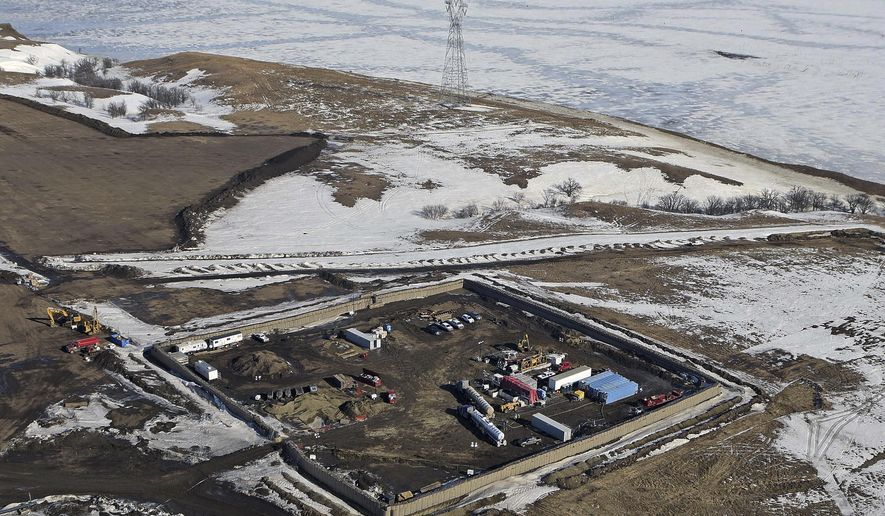BISMARCK, N.D. (AP) - Federal officials who permitted the Dakota Access oil pipeline are turning over some documents sought by American Indian tribes suing over the project, but said a request for dozens more records is vague and overly broad and should be rejected by a federal judge.
Texas-based Energy Transfer Partners, which built the pipeline that’s now moving North Dakota oil to a shipping point in Illinois, also implored U.S. District Judge James Boasberg on Monday to deny the tribal request, saying it’s meritless and will “inject needless delay into a case that already has seen more than its fair share.”
The tribal lawsuit has lingered since July 2016. Boasberg in June 2017 ruled that the Army Corps of Engineers “largely complied” with environmental law when permitting the $3.8 billion pipeline, but he ordered more study on tribal impacts. The Corps in August 2018 said more than a year of study had substantiated its earlier determination that the pipeline doesn’t pose a higher risk of adverse impacts to minorities.
The agency last month turned over to the tribes documents it used in making that determination. The Standing Rock, Cheyenne River, Yankton and Oglala Sioux are challenging the Corps assertion and accused the agency of withholding about 50 documents .
Justice Department attorney Amarveer Brar, who’s representing the Corps, in a response filed Monday said the tribes are trying to “add a broad array of documents to the record, most of which were not directly or indirectly considered by the Corps.”
The agency does plan to provide eight additional records, but many other tribal requests are “non-specific” or “based purely on speculation,” Brar said.
Some of the records the tribes allege are missing from the official record relate to the pipeline’s crossing beneath the Lake Oahe reservoir on the Missouri River in the Dakotas, which the tribes rely on for drinking water, fishing and religious practices.
Fears of a spill into the river sparked prolonged protests in 2016 and early 2017 that drew thousands of pipeline opponents from around the world to southern North Dakota. The tribes are continuing the fight in federal court even though the pipeline began operating in June 2017, hoping to get Boasberg to shut it down. They argue that the missing documents could bolster their case and possibly influence the judge’s eventual decision on whether the Corps study is adequate.
___
Follow Blake Nicholson on Twitter at: http://twitter.com/NicholsonBlake




Please read our comment policy before commenting.